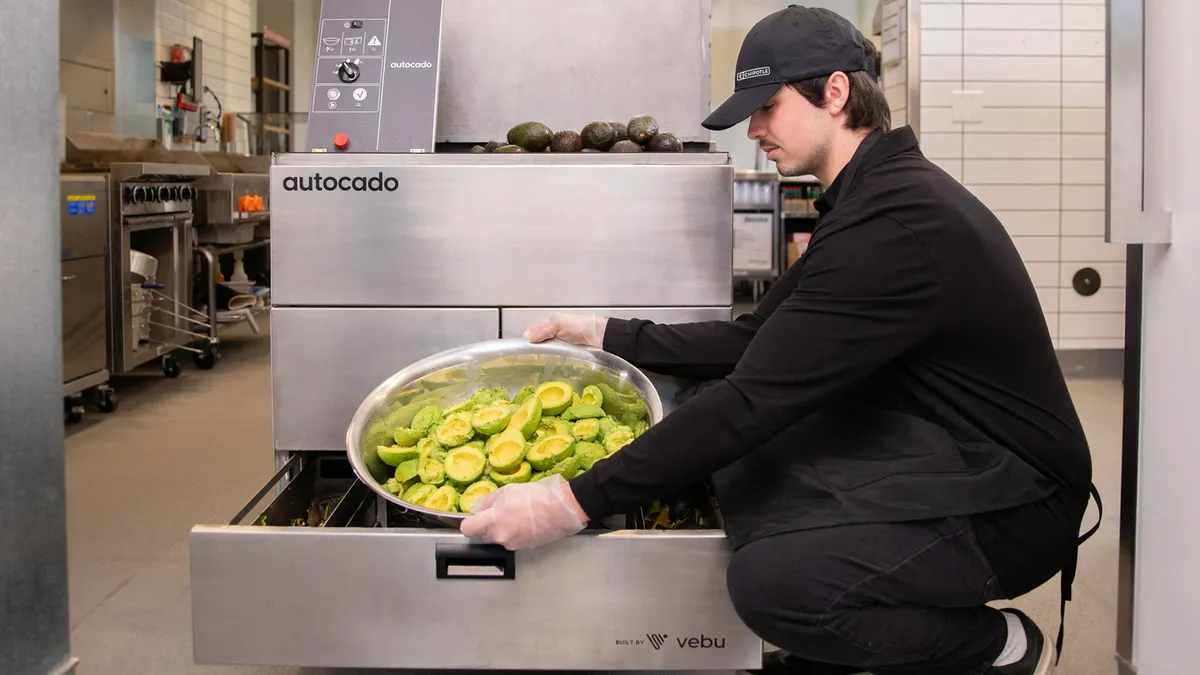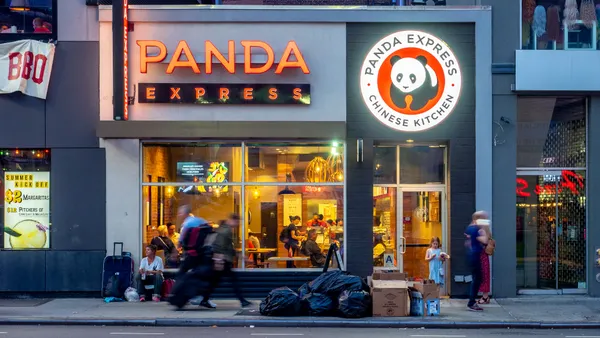Dive Brief:
- Chipotle is testing an avocado processing robot designed by Vebu at its Chipotle Cultivate Center in Irvine, California, the company announced Wednesday. Vebu is a robotics company in which Chipotle is investing through its Cultivate Next Fund.
- The robot, which Chipotle calls Autocado, can hold 25 pounds of avocados at a time and cuts, cores and scoops the fruits.
- Vebu and Chipotle claim that as the robotics team at Vebu improves the machine’s processing capability, it could eventually halve the time required to make a batch of guacamole, from about 50 minutes to about 25 minutes.
Dive Insight:
The Vebu partnership is part of a broader strategy by Chipotle to invest in labor-saving technology.
In early 2021, the company invested in autonmous delivery startup Nuro. A year later, Chipotle announced it was testing a tortilla chip-making robot, called Chippy, with Miso Robotics. That test, according to Wednesday’s press release, is ongoing at a restauran in Fountain Valley, California.
In April 2022, the company announced a $50 million venture fund called Cultivate Next to boost restaurant technology. In July 2022, Chipotle invested in Hyphen, which creates automated makelines. By February, the fast casual chain and Hyphen were working on developing an automated makeline for digital orders. In May, Chipotle began a national rollout of its RFID-based food tracking system to bolster food safety.
Vebu and Chipotle framed the robot as a way to “[allow] Chipotle employees to focus on serving guests and providing great hospitality.” Given that Chipotle stores in North American and Europe will use about 100 million pounds of avocados, by the company’s estimate, a robot dedicated specifically to processing the fruits could yield significant time savings. The machine’s battery of sensors could help reduce food waste by improving the efficiency and precision of avocado processing, according to the press release.
As wages have increased in traditionally low-wage sectors across the last few years, interest in labor-saving technology has grown among foodservice businesses.
Sweetgreen is planning to add an automated makeline to all of its new stores in the near future. White Castle has begun testing and deploying an automated fry cook, aiming to deploy it in almost one-third of its restaurants. McDonald’s opened a test unit for a variety of technologies in December. Uber and Serve Robotics plan to deploy up to 2,000 delivery robots. Much of the equipment rewarded at this year’s National Restaurant Association Show’s Kitchen Innovation Awards included automated elements designed to save on labor.
Despite considerable press coverage, such changes have done little to slow wage growth for production and nonsupervisory employees in foodservice and restaurants, with wages for those workers hitting a national average of $17.92 an hour in May 2023, according to the Bureau of Labor Statistics.












